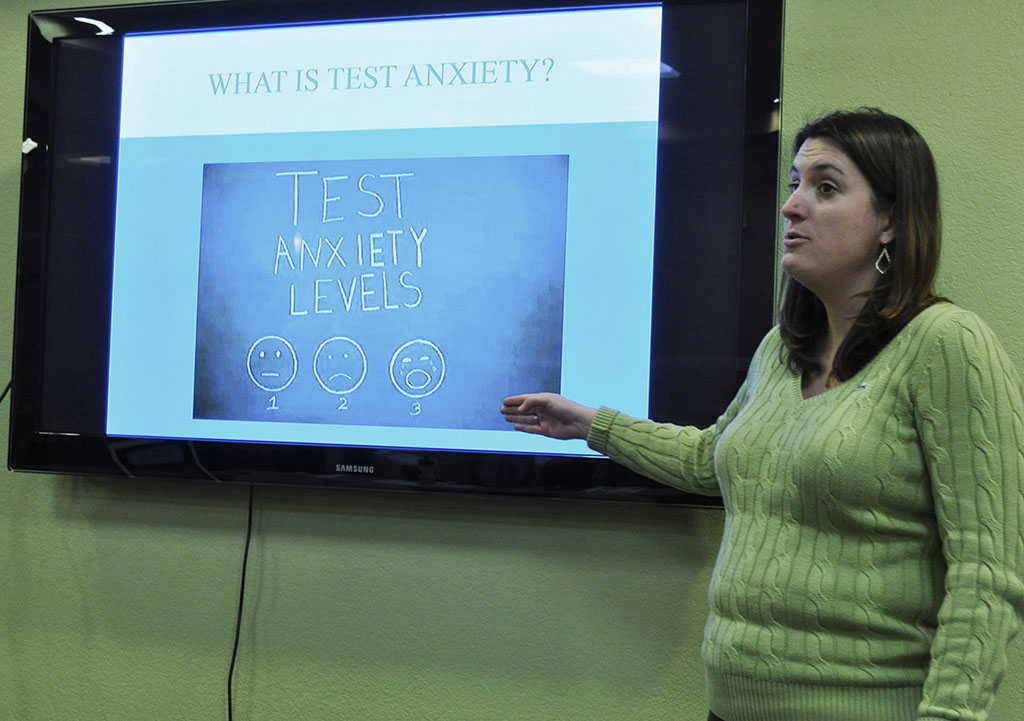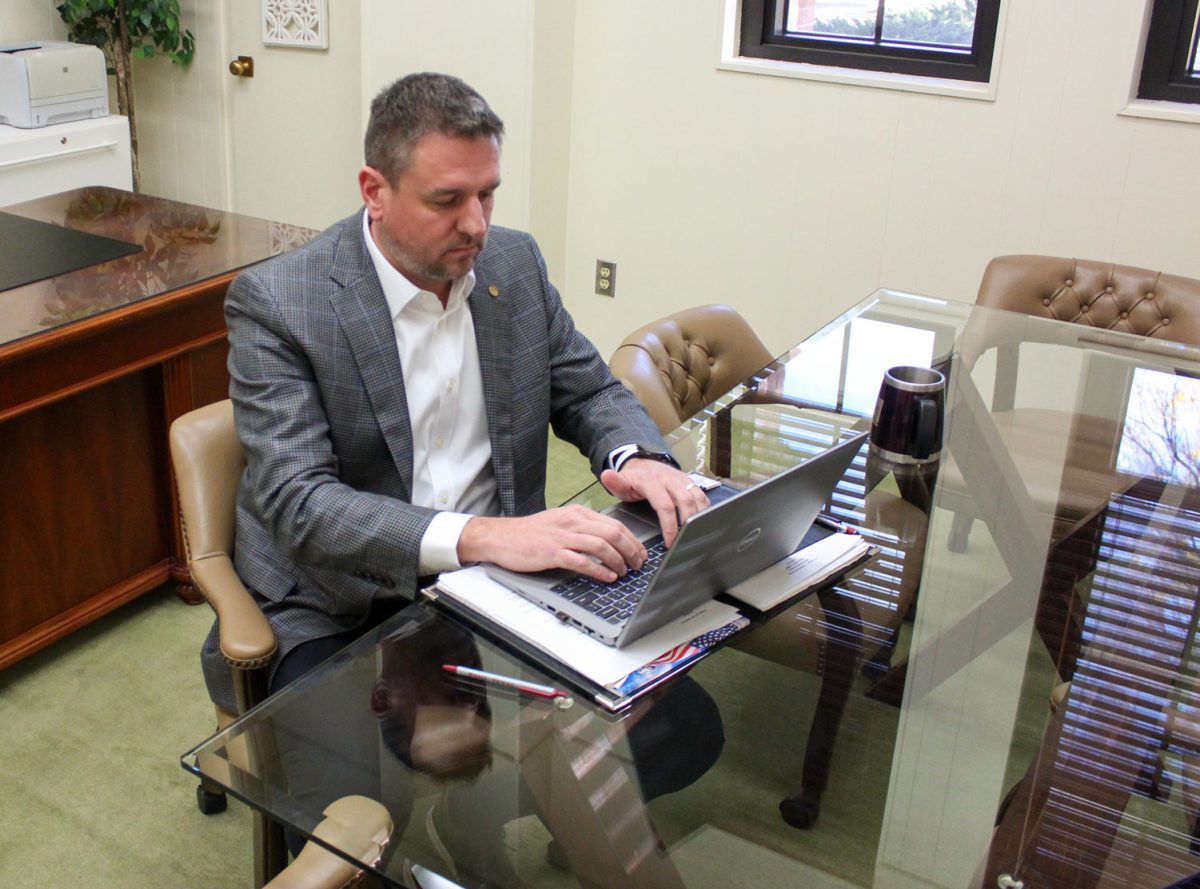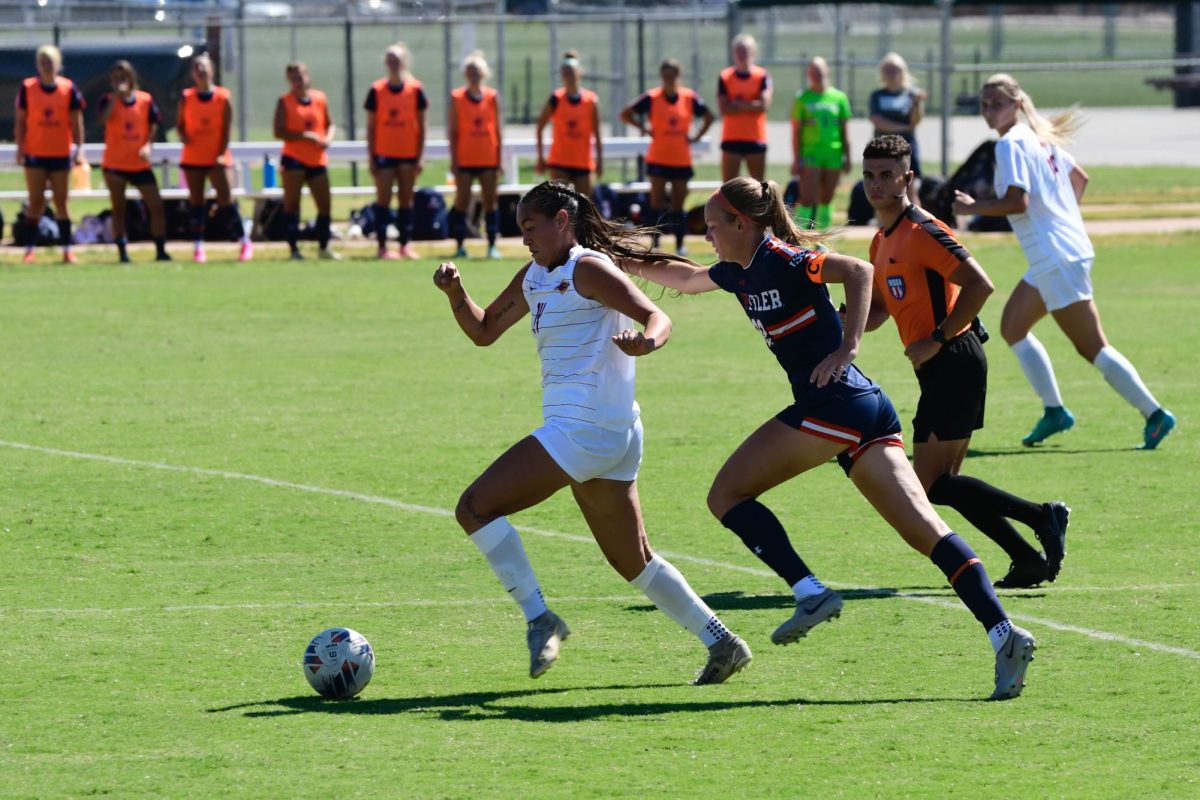
For the past month, academic counseling meetings have been available for students to attend. On Feb. 16, Reagan Foster, licensed therapist, offered a PowerPoint-style counseling presentation on different ways to overcome testing anxiety. She presented to a crowd of seven, made up entirely of females.
“You have to have intent. You have to have intent everyday of your life. You don’t just wake up healthy. You plan it,” Foster said.
Foster als0 provided multiple steps for students to take back with them. According to Foster, one of the tips that is essential to overcoming testing anxiety is knowing how to control your breath. She allowed a minute for the people in the room to practice breathing exercises as a proper and easy way to relax in the moment.
“Your mind is a muscle and we have to work it out. It’s important that you give it a rest,” she said.
Other tricks included knowing how to take care of the body, learning to stay focused, and basic studying tips.
Foster discussed a study method that allows for 15-20 minute study sessions with five-minute breaks in between. Mark Benoit, dental hygiene junior, said she felt the studying tip was useful and that she would use it in the future.
“I feel like they [the faculty] are always trying to help us and want us to succeed. I think it’s good that the university is willing to help their students on things that matter to them, “ Benoit said.
For Brooke Siler, nursing sophomore, this wasn’t the first academic counseling meeting she had been to. Alongside testing anxiety, she also went to meetings that focused on time management and Four Steps to a 4.0.
“I feel like a lot of people don’t know about the Counseling Center. I want to start going there just because of these meetings,” Siler said.
Benoit also agreed with Siler and said she feels the counseling series is beneficial and that she would encourage other students to look into checking out future meetings and talking with a counselor.
“Learning about the different study habits and ways to relax during, before, and even after the tests helped me and could help someone else too,” Benoit said. “Plus, she’s a counselor talking to normal students, so I feel like that could make people want to check it out.”












